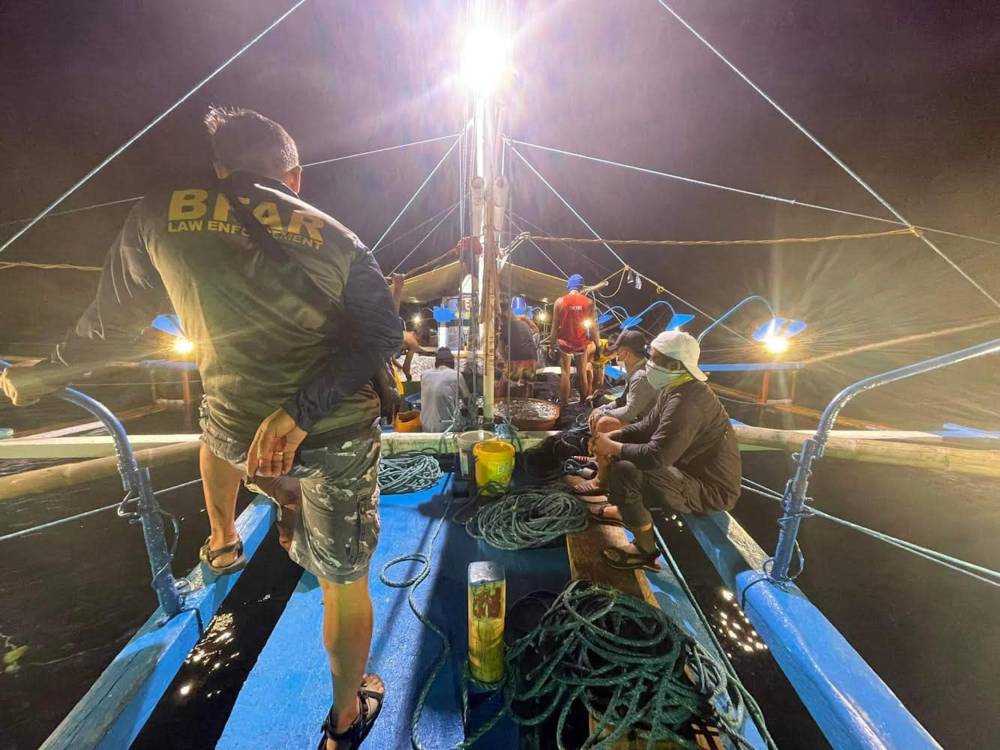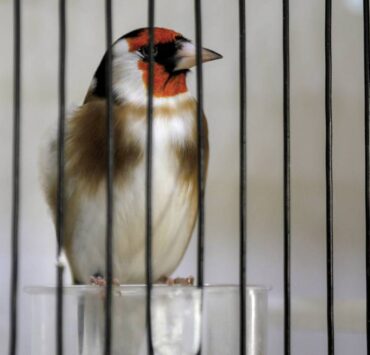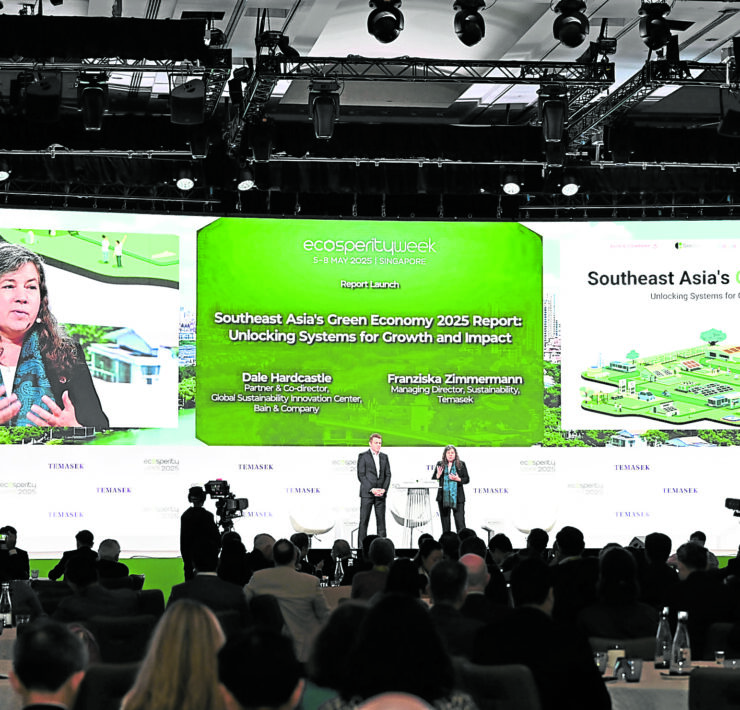Would SC’s decision to permit commercial fishing in municipal waters affect small-scale fishers?

- Considering these pressing concerns, a call for a temporary suspension of the recent Supreme Court ruling pending thorough scientific assessment and a comprehensive cost-benefit analysis is warranted. Such a precautionary approach is essential to safeguard the interests of all stakeholders and prevent further depletion of our valuable marine resources.
The recent decision by the Supreme Court allowing commercial fishing operations within municipal waters has dealt a severe blow to the small-scale fishery sector. This decision, originating from a lower court in the fish landing city of Malabon, raises questions about its rationale and the potential impacts on the already fragile state of our fisheries.
The decision puts the spotlight on the importance of municipal waters in balancing commercial fishing and conservation for sustainable fisheries.
In an open letter to the President of the Philippines and the Supreme Court, Alfredo Coro II, the mayor of Del Carmen in Surigao del Norte, highlights the detrimental impact of this decision on the already struggling subsistence fishing sector, which is primarily composed of small-scale fishers. Mayor Coro, a renowned advocate for good environmental governance and the rights of small fisherfolk, stresses that this move will only worsen poverty within this sector. Being the mayor of a coastal town heavily dependent on fishing as its main economic activity, Mayor Coro’s insights are grounded in firsthand experience and understanding of the challenges faced by the sector. His letter is widely shared on social media platforms, resonating with many who recognize the importance of supporting the welfare of those dependent on fishing for their livelihoods.
The current state of our fisheries paints a grim picture.
Data from the National Stock Assessment Program (NSAP) of the Bureau of Fisheries and Aquatic Resources (BFAR) indicate a disturbing trend of overexploitation, with all indicator fish species in the red, indicating overharvesting beyond the sustainable level. For instance, the stock of lizardfish or dalag bay-bay (Saurida tumbil) is on the brink of collapse, with modeling tools unable to predict stock recovery due to critically low numbers according to NSAP analysts. NSAP’s data show that 93 percent of lizardfish catch is immature. Given this, the Science Advisory Group (SAG) of Fisheries Management Area 6 (FMA6), an area encompassing Mindoro to Ilocos Norte, is proposing a drastic reduction in fishing effort by as much as 65 percent, coupled with an imposition of closed season between August and November.
Given the limited productivity of our seas, constrained by nutrient availability, only a few areas are characterized by high primary productivity because of oceanographic processes like upwelling, thus, high secondary productivity in the form of commercially important fish species among other organisms.
*Permitting commercial fishing in municipal areas may exacerbate the depletion of fish stocks, particularly reef-associated species. This is especially concerning in areas of low primary productivity, which could not adequately support the fishing pressure.
To address these challenges, sustainable management practices are crucial. Suggestions from the SAG of FMA6 emphasize the need for immediate action, including reducing fishing efforts, combating illegal fishing practices, and implementing closed seasons to allow fish stocks to recover.
But safeguarding our fisheries for future generations necessitates a holistic approach anchored on good science. Studies like the one conducted by Richard Muallil and colleagues highlight the urgent need for reducing fishing efforts by up to 50 percent and establishing more marine reserves to protect vulnerable species and habitats.
Conservation and sustainability
On a global scale, the Kunming-Montreal Global Biodiversity Framework (KMGBF) advocates for the strict protection of 30 percent of our oceans to preserve marine biodiversity and ensure sustainable fisheries. This framework underscores the interconnectedness of marine species and the importance of balancing conservation efforts with sustainable resource management.
The goal of opening the municipal waters to commercial fishing is purportedly to increase total fish catch nationwide. We heard such an argument during a congressional hearing for a proposed bill aiming to reduce the distance of municipal waters from 15km to 10km. The rationale behind this proposed change is based on an inaccurate notion that small-scale fishers are unable to efficiently harvest fish stocks during peak periods, ultimately leading to wasted resources.
However, data from BFAR suggests otherwise, indicating that fish stocks are already being overexploited (see “Fishers are now catching undersized galunggong, other fish species due to overfishing.” An unequivocal proof of an overexploited fisheries can be gleaned from the need to import fish to compensate for a shortfall in supply despite excess in fishing effort. To tackle this issue, the government must prioritize addressing Illegal, Unreported, and Unregulated (IUU) fishing activities, which are estimated to contribute up to 25 percent of the total catch, much of which is landed in other countries rather than our own. Moreover, instead of boosting fishing efforts to meet the fish supply demands, the focus should be on replenishing depleted stocks and promoting sustainable fishing practices as required by Republic Act No. 10654.
Nonetheless, let’s entertain the notion that fish stocks in municipal waters are not fully utilized. Could this possibly benefit the commercial sector by maintaining reserve stocks that aid in replenishing depleted resources in the open sea?
Understanding the reproductive behaviors of pelagic commercial species is crucial. Many fish species spawn in open ocean areas, near reefs, and in estuaries.
Therefore, it is essential to manage coastal regions to support fish in completing their reproductive cycles. Fully exploiting stocks during their peak, as supporters of the proposed bill argue, could deplete spawners and hinder stock replenishment in fished zones. This might explain why, despite overfishing in the high seas, stocks appear inexhaustible due to continuous replenishment from municipal waters.
Remedies
Are there other potential remedies that could be considered? For example, could local government units implement new ordinances or enforce existing ones to restrict commercial-scale fishing within the 15-km boundary? Moreover, is the fisheries management area approach a viable option to effectively regulate commercial fishing in municipal waters, or could it potentially exacerbate tensions and spark legal battles between small-scale and large-scale players in the fishing industry?
Area-based management approaches, such as reserves or sanctuaries, offer our most promising solution. However, at present, these areas are limited in size and do not encompass offshore regions. As a result, they may not be adequate to effectively mitigate the increasing fishing pressure. This calls for the hastening of the expansion efforts of marine reserves to also meet our 30×30 commitment to the Convention on Biological Diversity.
Considering these pressing concerns, a call for a temporary suspension of the recent court ruling pending thorough scientific assessment and a comprehensive cost-benefit analysis is warranted. Such a precautionary approach is essential to safeguard the interests of all stakeholders and prevent further depletion of our valuable marine resources.
On a different note, when it comes to capturing fisheries, one cannot help but see this practice as a relic of the past vis-a-vis the internet and the electronic vehicles or ‘EVs’ era. In order to enhance fish production, the fishing industry needs a fundamental change like what happened to agriculture. Here, aquaculture appears to be the way forward.
Dr. Michael P. Atrigenio is an Assistant Professor at the Marine Science Institute of the University of the Philippines Diliman and the program head of the Professional Masters in Tropical Marine Ecosystems Management Program. He is also the President of the Marine Environment and Resources Foundation. *Drs. Samuel Mamauag (De La Salle University) Reniel Cabral (James Cook University) and Richard Muallil (Mindanao State University at Tawi-tawi) contributed to this article.





















